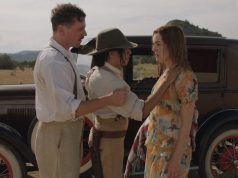On the subject of the death penalty, there are reasonable arguments to be made on both sides. But even those who support capital punishment in theory must concede that it’s perilously difficult to administer it in practice. It’s only defensible if there isn’t the slightest doubt whatsoever that the person is unequivocally guilty — and how many cases are that clear?
The documentary “At the Death House Door” doesn’t take a firm stance against the death penalty altogether, but it sure makes a strong case for exercising caution. It does this through the poignant, heart-rending story of Rev. Carroll Pickett, a soft-spoken Texas man who served for 13 years as chaplain at the notoriously execution-happy Huntsville Prison. Here he counseled with 95 prisoners during their final hours, and the experience changed his life.
Pickett was a local preacher in 1974 when he was asked to minister to the families of the people taken hostage during a deadly prison siege. Some years later, he became the prison chaplain officially, moving with his wife and children from a large, comfortable home to a depressing brick house on the prison campus. Counseling soon-to-be-executed inmates was not specifically in his job description, but it came to be his duty and eventually his personal mission.
“The system is broke,” he says, now retired and reflecting upon his profound career. “But no man should die without a friend. I think that’s what I was.”
The job was stressful and emotionally painful, and Pickett’s marriage suffered because of it. To cope, he made tape recordings of his thoughts and feelings, an audio diary so personal that his children didn’t even know it existed until the documentary was being produced. His second wife, Jane, says she has never seen him cry. “Those tapes must be his tears,” she says.
Interwoven with Pickett’s general story is the specific case of Carlos De Luna, who was executed in 1989 for a murder he almost certainly did not commit. Pickett doubted the man’s guilt at the time, and subsequent investigations (including one by the Chicago Tribune chronicled in the film) have cast enough doubt to show that De Luna never should have been convicted, let alone executed.
Steve James, whose “Hoop Dreams” is one of the most highly praised documentaries ever made, co-directed “At the Death House Door” with producer Peter Gilbert. Their touch is artistic but not pretentious, utilizing music (a haunting score by Leo Sidran) and other cinematic effects sparingly — just enough to elevate the film from public-television special to high art.
We see, through extensive interviews with Pickett and his family, how he changed over the years from an unequivocal death penalty advocate — his own grandfather was a murder victim, and his father taught him, “Hang ‘em high, hang ‘em fast” — to a man whose feelings are now a great deal more nuanced. He treated the prisoners humanely, gently, even the ones he knew were guilty. He recoils at the memory of an inmate whose botched execution lasted 11 excruciating minutes before he finally died. “That’s not, to me, either Christian or American or Texan,” he says.
You can make a strong case for the position that if the state is certain of a murderer’s guilt, it should be able to execute him. But “At the Death House Door” reminds us that we are very, very rarely 100 percent certain — and that even if we are, the killers are still human beings. Carroll Pickett’s compassion and sympathy, so expertly captured by James and Gilbert, should be a humbling lesson for us all.
B+ (1 hr., 38 min.; )





